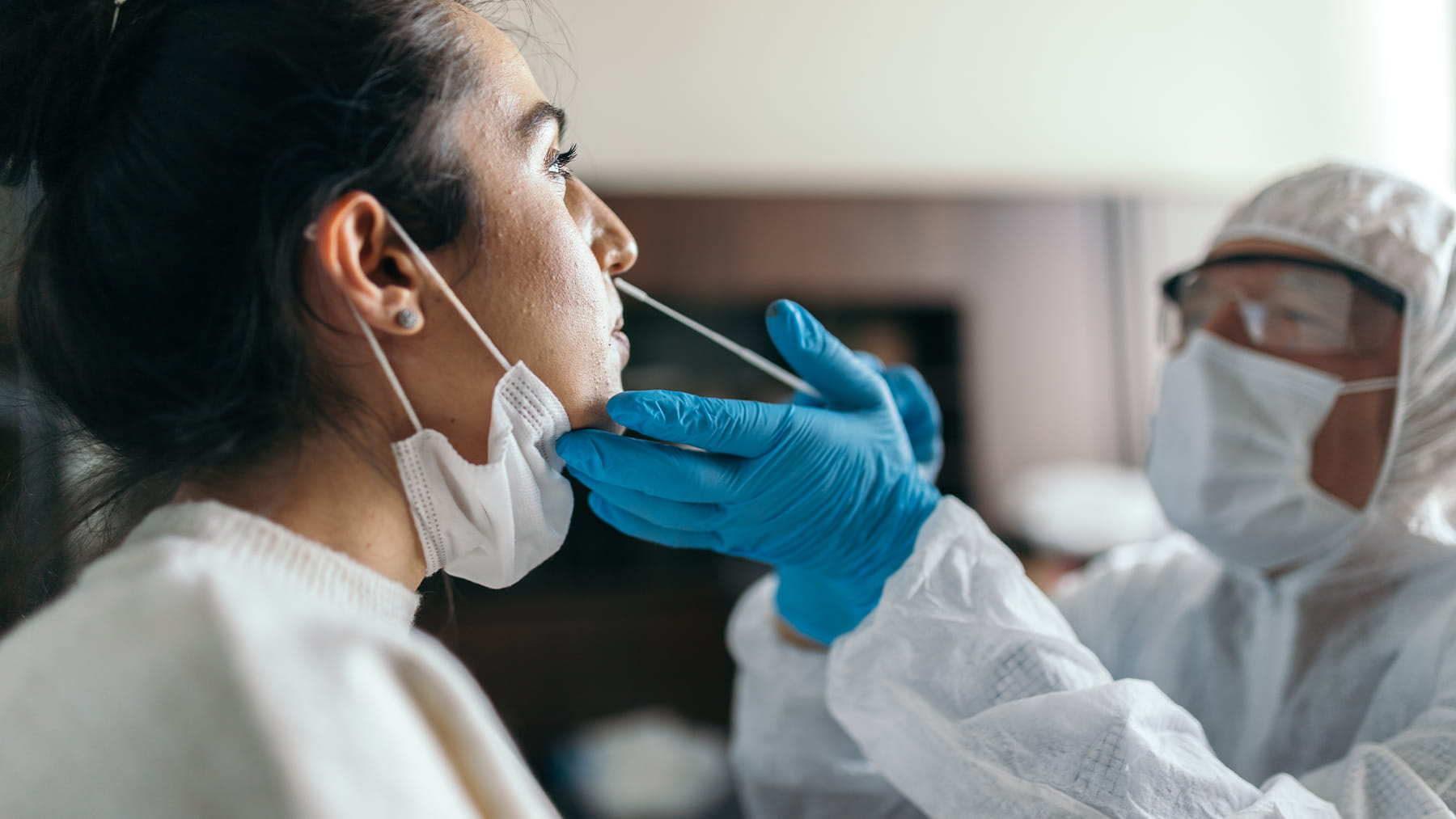Why are there more COVID-19 cases in vaccinated people now?
 As what we know about COVID-19 evolves, so could the information contained in this story. Find our most recent COVID-19 blog posts here.
As what we know about COVID-19 evolves, so could the information contained in this story. Find our most recent COVID-19 blog posts here.
As a primary care physician, I’ve received a lot of questions lately about “breakthrough” COVID-19 infections, the term used to describe when someone who is vaccinated against COVID-19 still contracts a case of the virus.
It can be a confusing topic, so let’s break down why breakthrough infections happen and what they mean for public health.
If someone gets COVID-19 after being vaccinated, does that mean the vaccine didn’t work?
It’s important to remember what we consider an effective vaccine. The currently available COVID-19 vaccines have shown that they are very effective in preventing severe cases of COVID-19 that lead to hospitalization and death.
All along, it’s been possible that someone could still contract a symptomatic case of COVID-19 despite being vaccinated — but they would be less likely to require hospitalization, and they’d be less likely to die of the disease. Data shows that this is still overwhelmingly the case, as nearly all COVID-19 deaths in the United States are among unvaccinated people.
Now that the currently available vaccines are beginning to receive full FDA approval, we can be even better assured of vaccine safety, through rigorously reviewed data collected on tens of millions of vaccinated people.
Why are we seeing higher numbers of COVID-19 cases in vaccinated people?
As more people get vaccinated, we will naturally see that more COVID-19 cases are in vaccinated people, simply because they represent a large and growing portion of the population.
We’re also seeing the spread of a newer, much more contagious variant of COVID-19.
Because we use genomic sequencing on COVID-19 test samples at the Ohio State Wexner Medical Center, we can see that the delta variant has caused nearly all COVID-19 cases in patients tested here.
With the delta variant, the concentration of virus in an infected person’s mouth and nose is about 1,000 times that of the previous dominant strain of COVID-19 from earlier this year. That means that if droplets from an infected person’s mouth or nose reach another person’s mouth or nose, that other person is much more likely to be infected.
The bottom line
COVID-19 vaccines are incredibly effective at preventing hospitalization and death. If you’re vaccinated, it is still possible (though much less likely) that you’ll become infected with SARS-CoV-2 (meaning the virus that causes COVID-19 is present), and even less likely that you will develop COVID-19 disease (symptoms from being infected with SARS-CoV-2). But because of that vaccine protection, there’s a significantly lower chance that you’ll have severe symptoms.
Very few of those people who are vaccinated against COVID-19 and became infected have experienced severe symptoms that require hospitalization.
However, while you can trust that COVID-19 vaccines are safe and effective, we should remain cautious as we face new variants of the virus. Continue social distancing when possible, avoid indoor group gatherings and wear masks when indoors and around large groups.
Randell Wexler is a family medicine physician at The Ohio State University Wexner Medical Center.




